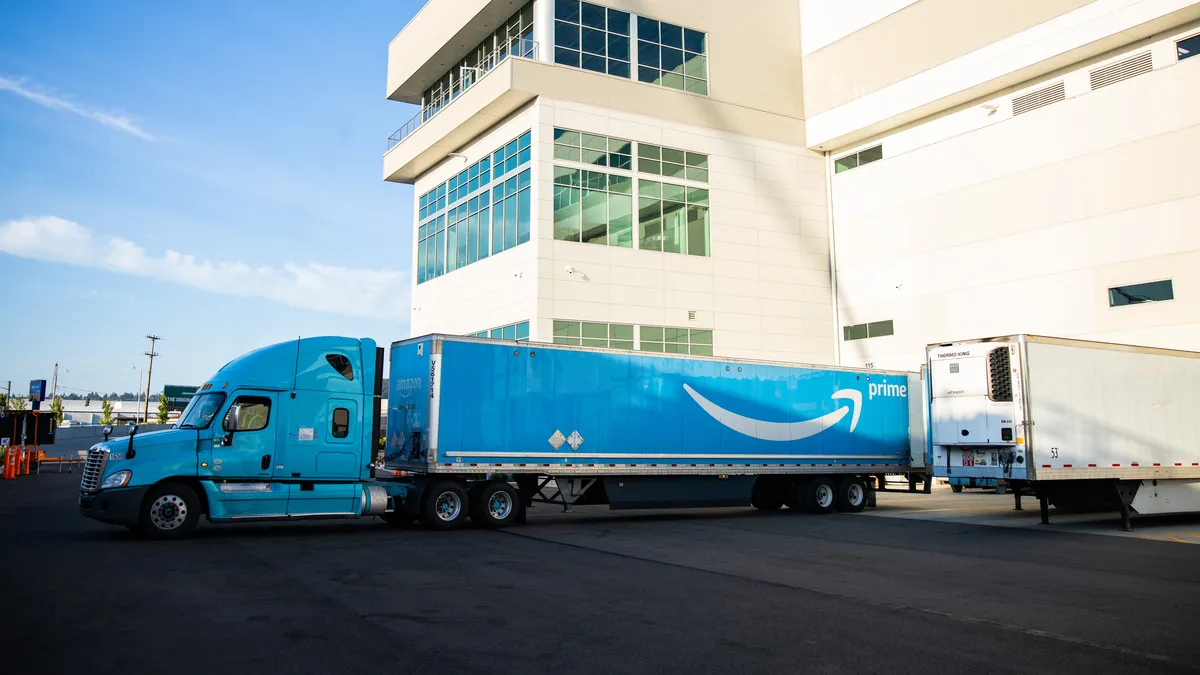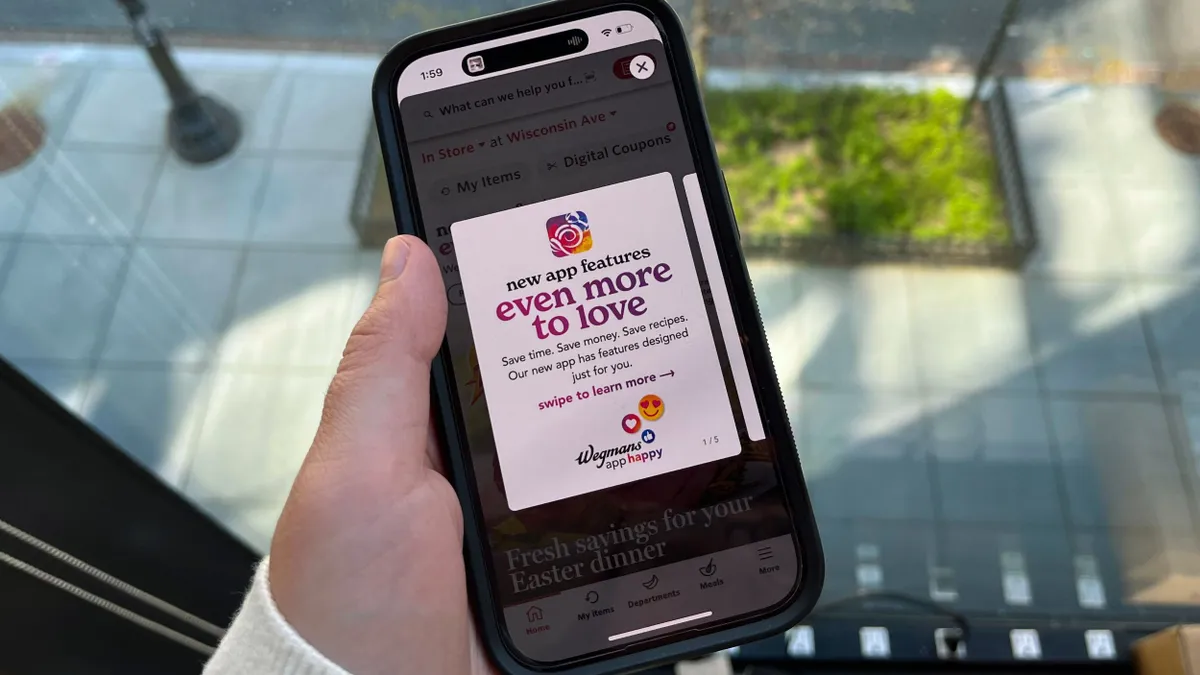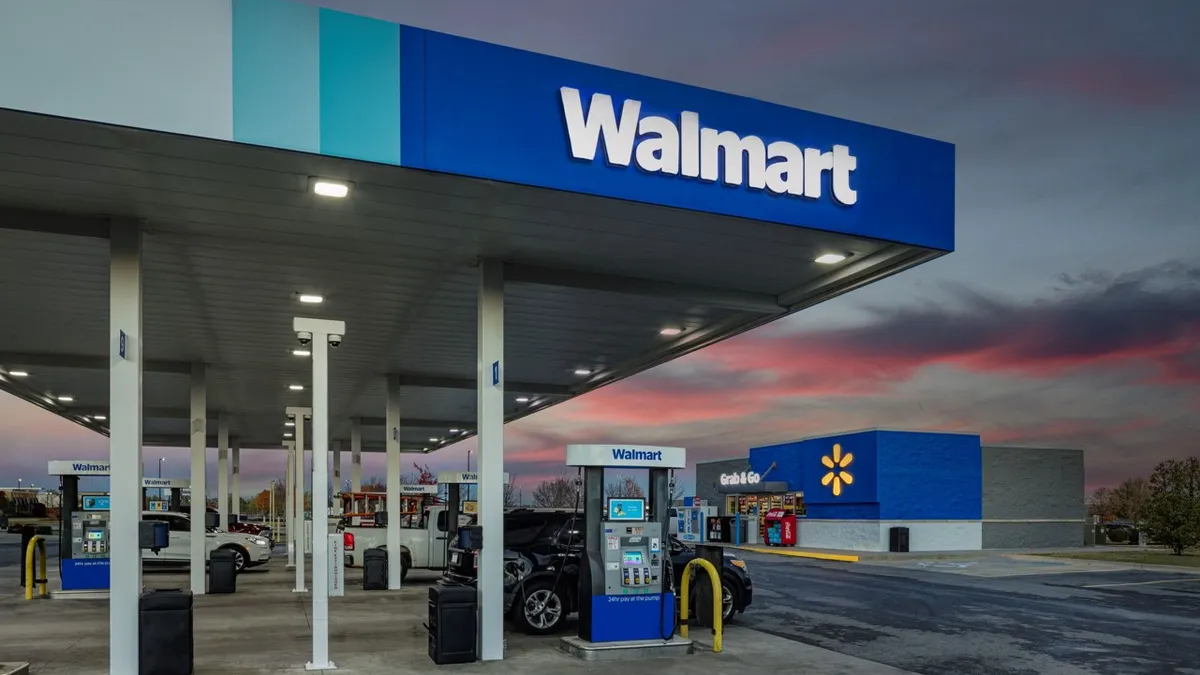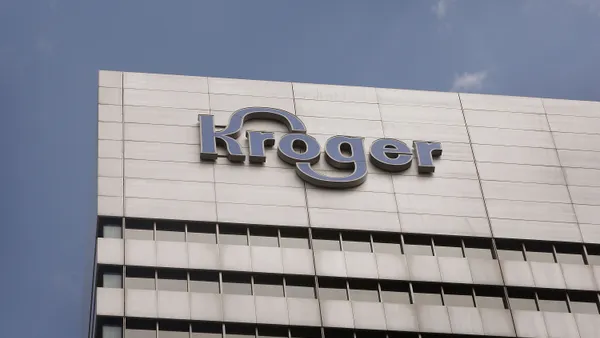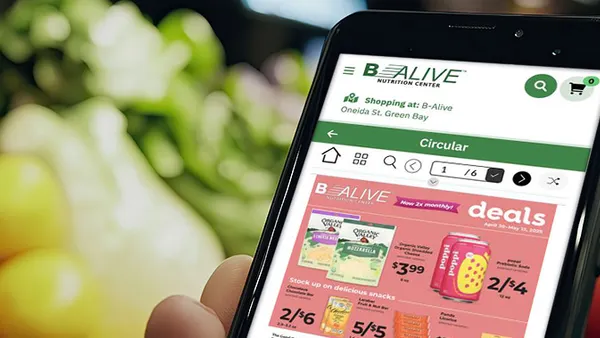Dive Brief:
- Amazon has named Doug Herrington, a longtime company executive who helped establish its grocery-delivery business, as CEO of its Worldwide Amazon Stores division, the retailer announced Tuesday.
- Herrington will replace Dave Clark as head of the unit, formerly known as Amazon Worldwide Consumer. Clark is leaving Amazon July 1 to become chief executive of supply chain technology startup Flexport.
- Amazon is elevating Herrington as the company strives to boost its financial performance and become more efficient in the face of inflation, rising labor costs and other headwinds.
Dive Insight:
Herrington brings a wealth of online retail experience to his new role, which will put him in charge of a large chunk of Amazon’s operations, including the delivery infrastructure that sits at the heart of the e-commerce giant’s business.
Herrington has served as senior vice president of Amazon’s North American consumer operations since 2015, according to his LinkedIn profile. He launched the company’s AmazonFresh grocery business in 2007, two years after joining the company to develop its consumables business, Amazon CEO Andy Jassy said in announcing Herrington’s appointment.
AmazonFresh, which began as a small-scale service in Seattle and expanded to Los Angeles in 2013, formed the foundation of the grocery-delivery business and subsequent store chain that Amazon runs today.
“He is a builder of great teams and brings substantial retail, grocery, demand generation, product development, and Amazon experience to bear,” Jassy said in a statement about Herrington’s appointment.
Herrington’s career in e-commerce is rooted in his experience as an executive of Webvan, the high-profile grocery e-commerce pioneer that wound up in bankruptcy in 2001. Before joining Webvan in 1998, Herrington worked for consulting firm Booz Allen and Hamiliton, where he was a partner in the retailing, consumer products and media group for nearly a decade.
Jassy said he believes Amazon has a long runway for growth as an online retailer, noting that the company’s sales represent just 1% of the worldwide retail market, which he pointed out is mostly comprised of sales at brick-and-mortar stores.
At the same time, Amazon is trying to figure out how to compete in brick-and-mortar retail. The company earlier this year closed down its 4-Star, Books and Pop Up stores and said it will focus on its Amazon Fresh, Whole Foods Market, Amazon Go, Amazon Style stores and Just Walk Out technology.
“If you believe that equation will change over time (which I do), there’s *a lot* of potential for us as we continue to be laser-focused on providing the best customer experience (broadest selection, low prices, fast and convenient delivery) while working on our cost structure to have the right long-term business,” Jassy said in the announcement.



